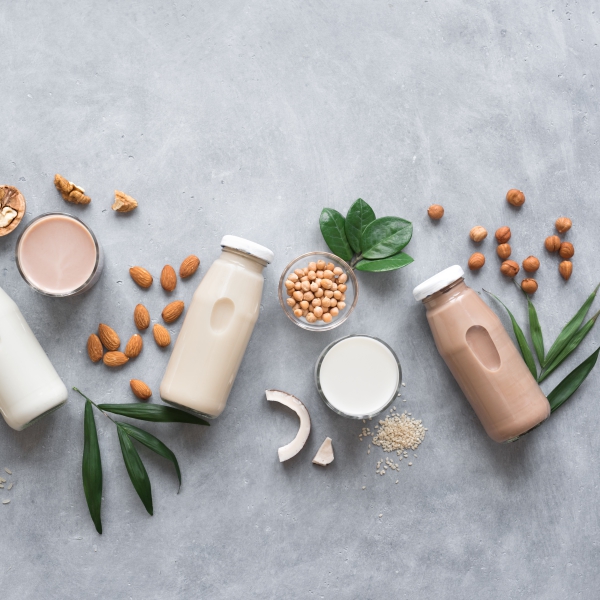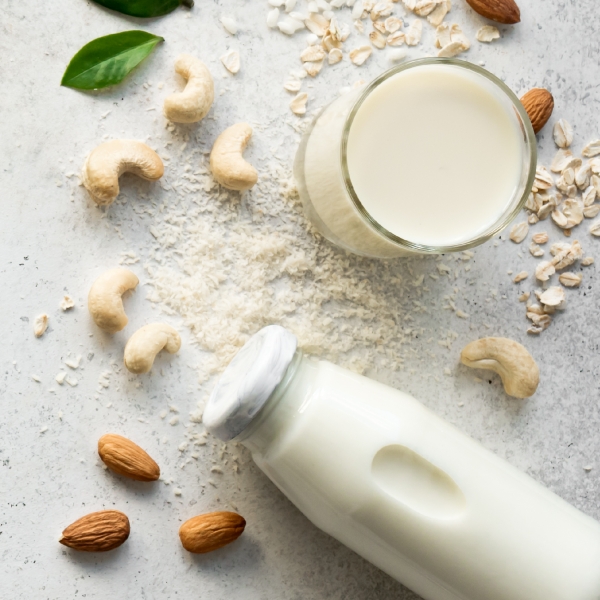Plant-Based Milks Nutritional Comparison
Plant-Based Milk
A Healthy Choice for the Health-Conscious!
Dairy alternatives, commonly known as "Plant-Based Milk" products, are gaining popularity among people worldwide. Plant-Based Milk perfect for those who opt for non-cow milk or those seeking diverse options, because they are made from a variety of dry legumes (soybeans, lentils), nuts (almonds, pistachios), and grains (oats, rice) to create alternative beverages.
In Thailand, the market is buzzing with a variety of plant-based milk brands and flavors. Nutritional content varies, ensuring you get your essential nutrients like complete proteins and calcium. Unveil the secret to a low-sugar, nutrient-rich lifestyle by deciphering the nutrition labels and GDA (Guideline Daily Amount) guidelines.
Plant-Based Milks Nutritional Comparison
BDMS Wellness Clinic presents some popular plant-based milk products for your consideration:
Soy Milk
- Energy 43 Kcal
- Carbohydrate 4.9 g
- Protein 2.6 g
- Fat 1.5 g
Almond Milk
- Energy 15 Kcal
- Carbohydrate 0.3 g
- Protein 0.6 g
- Fat 1.2 g
Oat Milk
- Energy 48 Kcal
- Carbohydrate 5 g
- Protein 0.8 g
- Fat 2.8 g
Pistachio Milk
- Energy 39 Kcal
- Carbohydrate 6.7 g
- Protein 0.6 g
- Fat 1.1 g
Rice Milk
- Energy 47 Kcal
- Carbohydrate 9.2 g
- Protein 0.3 g
- Fat 1 g
Corn Milk
- Energy 42 Kcal
- Carbohydrate 8.6 g
- Protein 1.1 g
- Fat 0.4 g
*Nutritional values per 100 grams
Choose plant-based milk for a healthier you! Remember to skim through those nutrition labels to make the smartest selection.
Reference
- The USDA National Nutrient Database for Standard Reference. FoodData Central [Internet]. 2019 [updated 2022, cited 2023 Mar 29]. Available from: https://fdc.nal.usda.gov/
- The Food and Drug Administration. Milk and Plant-Based Milk Alternatives: Know the Nutrient Difference [Internet]. 2023 Feb 22 [cited 2023 Mar 29]. Available from: https://www.fda.gov/consumers/consumer-updates/milk-and-plant-based-milk-alternatives-know-nutrient-difference




